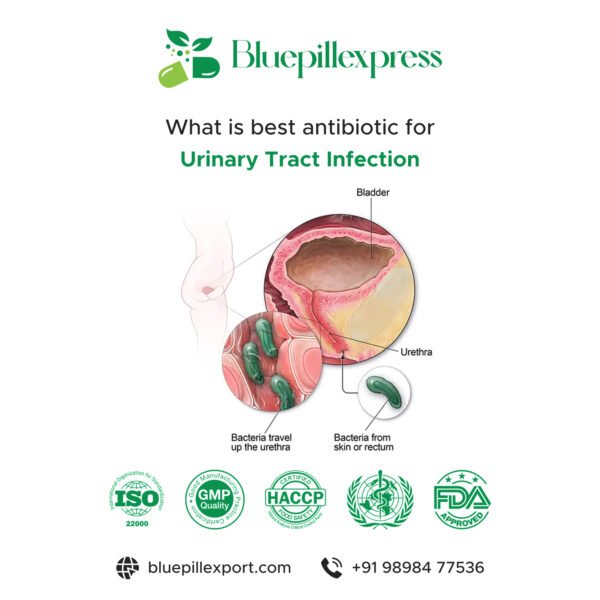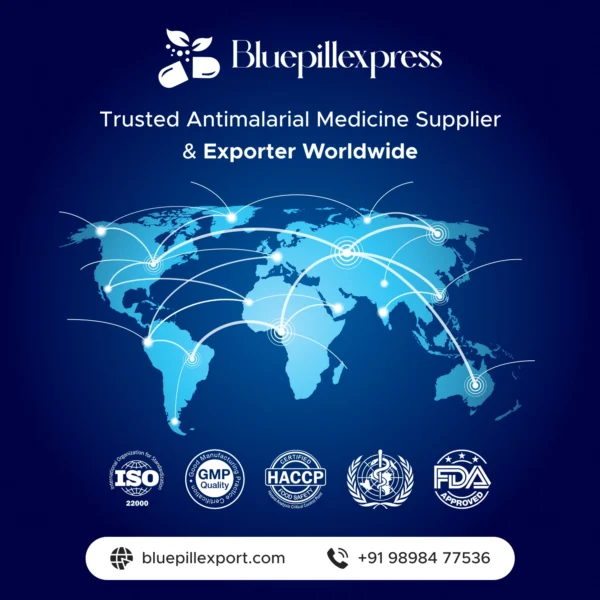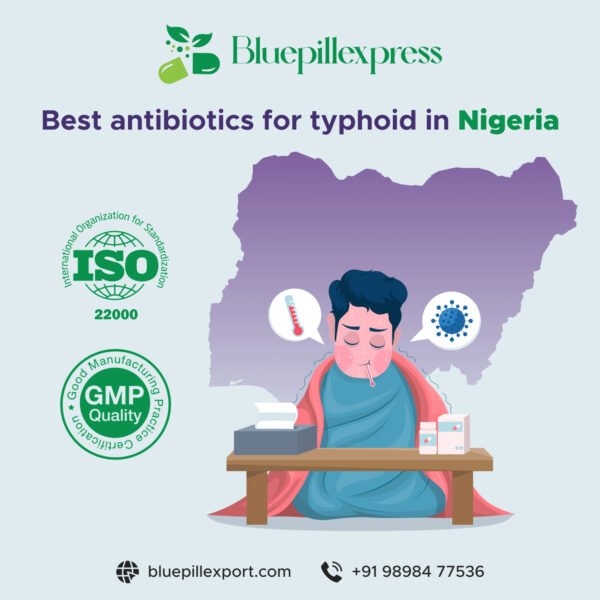List of Antibiotic Drugs in Nigeria: Guide to the Best Antibiotic Medicines
Antibiotics remain one of the most important medical breakthroughs in human history. In Nigeria, antibiotic drugs are widely prescribed for bacterial infections ranging from simple skin infections to life-threatening diseases like pneumonia and typhoid fever. With so many available antibiotic tablets and formulations, patients and caregivers often ask: Which is the best antibiotic? Which antibiotic medicine is strongest? How do I know when to use an antibiotic tablet safely?
This guide explores the major antibiotic drugs in Nigeria, their classifications, uses, and examples. We will also discuss strong antibiotics for severe infections, the best antibiotic tablets for common illnesses, and the importance of rational antibiotic use to avoid resistance.
Understanding Antibiotic Drugs
What are antibiotics?
Antibiotics are medicines that kill or inhibit the growth of bacteria. They are not effective against viral infections like the common cold or flu. The proper use of antibiotics can save lives, but misuse contributes to antimicrobial resistance (AMR), which is a growing problem in Nigeria and worldwide.
Why are antibiotic medicines important?
- They treat bacterial infections effectively.
- They prevent complications in conditions like pneumonia, sepsis, and meningitis.
- They support surgeries and procedures by preventing infections.
Classification of Antibiotics
Antibiotic drugs in Nigeria can be grouped into several classes:
- Penicillins – e.g., Amoxicillin, Ampicillin, Cloxacillin.
- Cephalosporins – e.g., Ceftriaxone, Cefixime, Cephalexin.
- Macrolides – e.g., Azithromycin, Erythromycin, Clarithromycin.
- Tetracyclines – e.g., Doxycycline, Tetracycline.
- Fluoroquinolones – e.g., Ciprofloxacin, Levofloxacin, Ofloxacin.
- Aminoglycosides – e.g., Gentamicin, Amikacin.
- Sulfonamides and Trimethoprim – e.g., Co-trimoxazole.
- Carbapenems – e.g., Meropenem, Imipenem.
- Others – e.g., Metronidazole (antiprotozoal and antibacterial), Linezolid.
Each group has its unique strengths, spectrum of activity, and common uses in Nigerian healthcare settings.
Commonly Prescribed Antibiotic Drugs in Nigeria
Here is a list of antibiotic drugs commonly available in Nigerian hospitals and pharmacies:
Penicillins
- Amoxicillin – a widely used antibiotic tablet for respiratory tract infections, urinary tract infections (UTIs), and skin infections.
- Cloxacillin – effective against staphylococcal infections.
- Ampicillin – used in meningitis, respiratory infections, and septicemia.
Cephalosporins
- Ceftriaxone – a strong antibiotic injection used for severe infections, including typhoid fever and sepsis.
- Cefixime – an oral antibiotic tablet often prescribed for typhoid and UTIs.
- Cephalexin – used for skin, ear, and throat infections.
Macrolides
- Azithromycin – one of the best antibiotics for respiratory infections and typhoid; also widely used in Nigeria during the COVID-19 era.
- Erythromycin – often prescribed for patients allergic to penicillin.
- Clarithromycin – used in respiratory and skin infections.
Tetracyclines
- Doxycycline – a common antibiotic medicine for malaria co-infection, typhoid, and sexually transmitted infections (STIs).
- Tetracycline – used in acne and certain bacterial infections.
Fluoroquinolones
- Ciprofloxacin – a strong antibiotic tablet for typhoid, UTIs, and gastrointestinal infections.
- Levofloxacin – preferred for respiratory infections and pneumonia.
- Ofloxacin – used in typhoid and STIs.
Aminoglycosides
- Gentamicin – a strong injectable antibiotic for hospital use in sepsis, pneumonia, and neonatal infections.
- Amikacin – used for resistant infections.
Sulfonamides and Others
- Co-trimoxazole (Septrin) – used for respiratory infections and prevention in HIV patients.
- Metronidazole (Flagyl) – often combined with other antibiotics for gastrointestinal and gynecological infections.
Carbapenems (reserved antibiotics)
- Meropenem – a last-line strong antibiotic for multidrug-resistant infections.
- Imipenem/Cilastatin – used in critical care hospitals.
Best Antibiotic Tablets for Common Infections in Nigeria
- Typhoid fever: Cefixime, Azithromycin, Ceftriaxone (injectable).
- Urinary Tract Infections (UTIs): Ciprofloxacin, Nitrofurantoin, Co-trimoxazole.
- Respiratory Tract Infections: Azithromycin, Amoxicillin, Levofloxacin.
- Skin Infections: Cloxacillin, Cephalexin, Doxycycline.
- Sexually Transmitted Infections (STIs): Azithromycin, Doxycycline, Ceftriaxone.
- Dental Infections: Amoxicillin + Clavulanic acid, Metronidazole.
These are not recommendations for self-treatment; they reflect what Nigerian doctors often prescribe based on infection type.
Strong Antibiotics in Nigeria (for Severe Infections)
Some infections require strong antibiotics due to their seriousness or resistance risk:
- Ceftriaxone (IV) – life-saving for sepsis and meningitis.
- Meropenem / Imipenem – used in ICUs for multidrug-resistant bacteria.
- Gentamicin – powerful against Gram-negative bacteria in hospital settings.
- Linezolid – reserved for resistant Gram-positive infections like MRSA.
Strong antibiotics should never be self-prescribed—they require medical supervision and hospital monitoring.
Safety and Side Effects of Antibiotic Medicines
- Common side effects: diarrhea, nausea, allergic reactions, yeast infections.
- Serious risks: kidney damage (aminoglycosides), liver problems (rifampicin), tendon rupture (fluoroquinolones).
- Always complete the prescribed dose of your antibiotic tablet; do not stop midway even if symptoms improve.
Antibiotic Resistance in Nigeria
Antibiotic misuse—such as taking incomplete doses, buying drugs without prescription, or using antibiotics for viral illnesses—is a major driver of resistance. Resistant infections mean common drugs stop working, forcing doctors to use stronger antibiotics like carbapenems, which are expensive and less available.
To combat resistance:
- Get a doctor’s prescription before buying antibiotic drugs.
- Avoid using leftover antibiotic tablets.
- Support public health campaigns promoting responsible use.
Buying Antibiotic Drugs in Nigeria – What to Know
- Purchase only from licensed pharmacies.
- Avoid street vendors or open markets where counterfeit medicines are common.
- Check expiry dates and packaging.
- Ask the pharmacist about the proper use of any antibiotic medicine.
Frequently Asked Questions (FAQ)
Q: What is the best antibiotic in Nigeria?
A: There is no single best antibiotic—it depends on the infection. For example, cefixime is common for typhoid, ciprofloxacin for UTIs, and azithromycin for respiratory infections.
Q: Can I buy an antibiotic tablet without prescription?
A: While many Nigerians do, it is not recommended. You should see a doctor to avoid wrong use and resistance.
Q: What are strong antibiotics?
A: Strong antibiotics include ceftriaxone, meropenem, gentamicin, and linezolid—used in severe or resistant infections.
Q: Are antibiotics safe for children?
A: Yes, but only under medical supervision. Pediatric doses differ from adult tablets.
Q: Can antibiotics cure malaria or flu?
A: No. Antibiotic drugs treat bacteria, not viruses or malaria parasites.
Conclusion
Antibiotic medicines are essential in the Nigerian healthcare system, but their effectiveness depends on correct usage. This guide highlighted the list of antibiotic drugs in Nigeria, their classifications, uses, and examples of best antibiotic tablets for specific infections. It also addressed the role of strong antibiotics for severe cases.
To protect the future, Nigerians must use antibiotics responsibly—always with a doctor’s prescription, always completing the course, and never self-medicating. With informed choices and proper regulation, antibiotic drugs will continue to save lives for generations to come.






 IndiaMart
IndiaMart
 FIEO
FIEO









